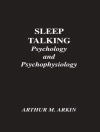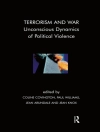The rich, complex theory of affect regulation boiled down into a clinically useful guide.
Affect regulation theory—the science of how humans regulate their emotions—is at the root of all psychotherapies. Drawing on attachment, developmental trauma, implicit processes, and neurobiology, major theorists from Allan Schore to Daniel Stern have argued how and why regulated affect is key to our optimal functioning. This book translates the intricacies of the theory into a cogent clinical synthesis.With clarity and practicality, Hill decodes the massive body of contemporary research on affect regulation, offering a comprehensible and ready-to-implement model for conducting affect regulation therapy.
The book is organized around the four domains of a clinical model: (1) a theory of bodymind; (2) a theory of optimal development of affect regulation in secure attachment relationships; (3) a theory of pathogenesis, in which disordered affect regulation originates in relational trauma and insecure attachment relationships; and (4) a theory of therapeutic actions targeted to repair the affect regulating systems.
The key themes of Hill’s affect-focused approach include: how and why different patterns of affect regulation develop; how regulatory patterns are transmitted from caretakers to the infants; what adaptive and maladaptive regulatory patterns look like neurobiologically, psychologically, and relationally; how deficits in affect regulation manifest as psychiatric symptoms and personality disorders; and ultimately, the means by which regulatory deficits can be repaired. Specific chapters explore such subjects as self states, mentalization, classical and modern attachment theory, relational trauma (and its manifestations in chronic dissociation, personality disorders, and pervasive dissociated shame), supporting self-development in therapy, patient–therapist attunement, implicit and explicit therapeutic actions, and many more.
Yazar hakkında
Allan Schore, Ph D, is on the clinical faculty of the Department of Psychiatry and Biobehavioral Sciences, UCLA David Geffen School of Medicine, and at the UCLA Center for Culture, Brain, and Development. He is the recipient of the American Psychological Association Division 56: Trauma Psychology ‘Award for Outstanding Contributions to Practice in Trauma Psychology’ and APA’s Division 39: Psychoanalysis ‘Scientific Award in Recognition of Outstanding Contributions to Research, Theory and Practice of Neuroscience and Psychoanalysis.’He is also an honorary member of the American Psychoanalytic Association. He is author of three seminal volumes, Affect Regulation and the Origin of the Self, Affect Dysregulation and Disorders of the Self and Affect Regulation and the Repair of the Self, as well as numerous articles and chapters. His Regulation Theory, grounded in developmental neuroscience and developmental psychoanalysis, focuses on the origin, psychopathogenesis, and psychotherapeutic treatment of the early forming subjective implicit self. His contributions appear in multiple disciplines, including developmental neuroscience, psychiatry, psychoanalysis, developmental psychology, attachment theory, trauma studies, behavioral biology, clinical psychology, and clinical social work. His groundbreaking integration of neuroscience with attachment theory has lead to his description as ‘the American Bowlby’ and with psychoanalysis as ‘the world’s leading expert in neuropsychoanalysis.’ His books have been translated into several languages, including Italian, French, German, and Turkish.












